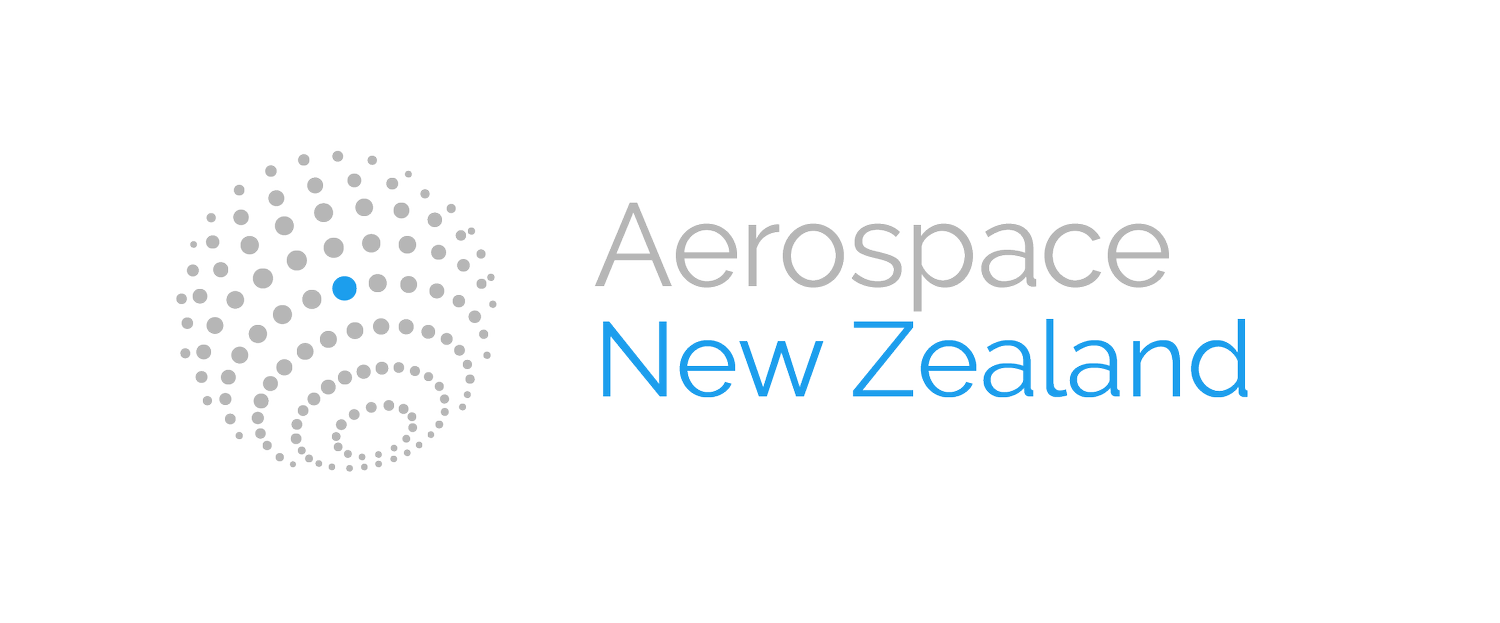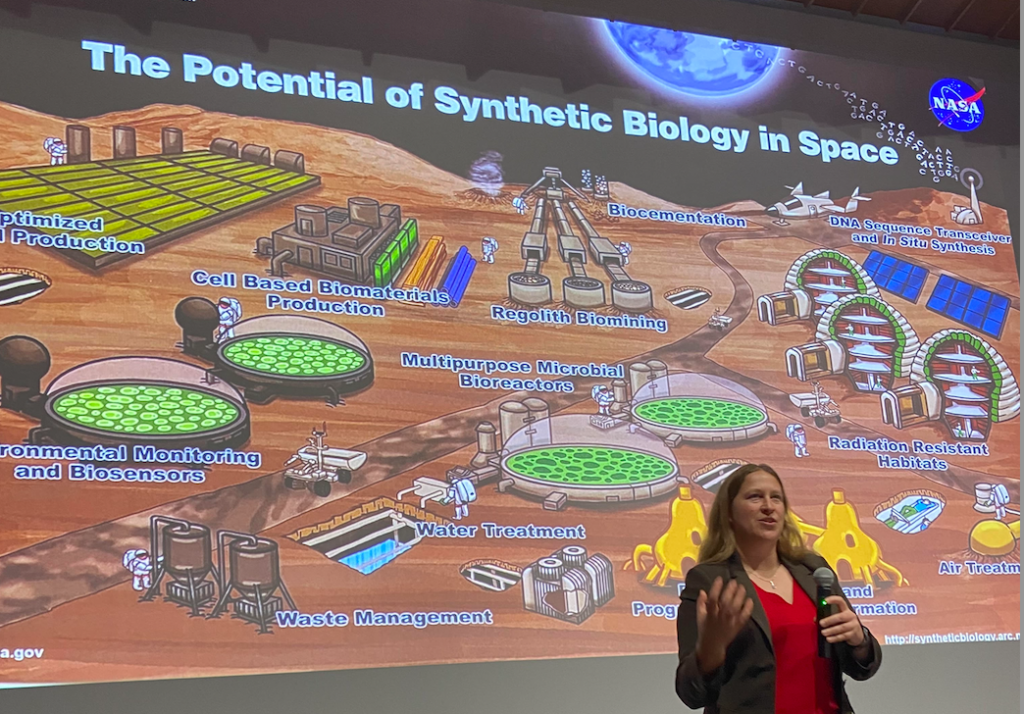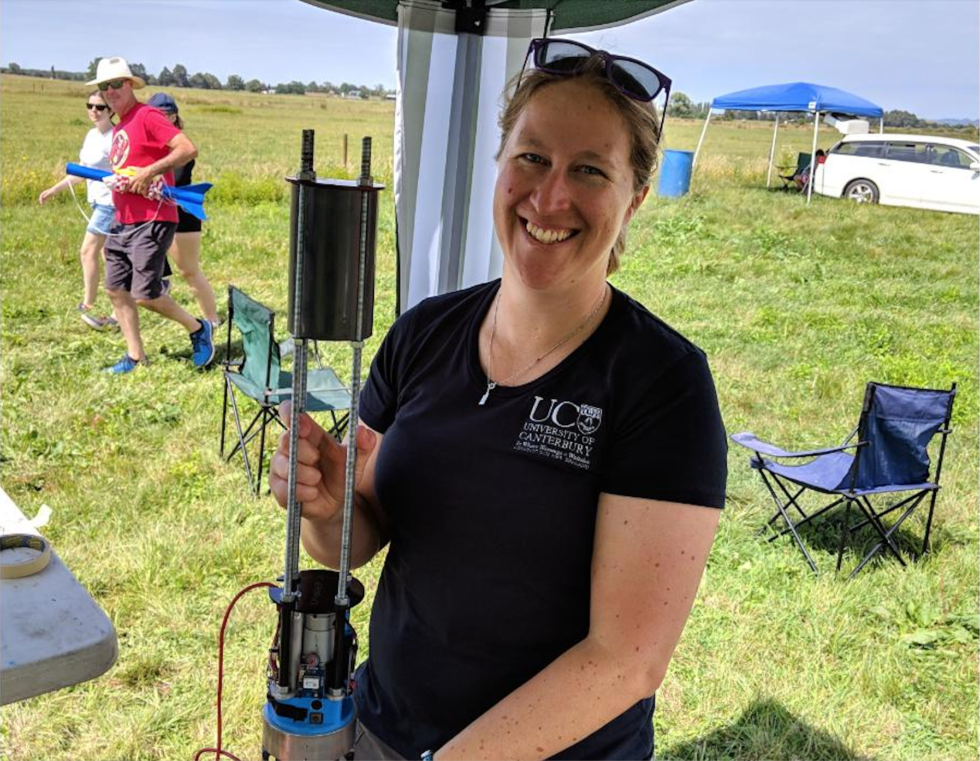Cooking Up a Storm in Space with Dr Sarah Kessans
Growing up in the fields and forests of southern Indiana in the USA, Sarah Kessans has always been curious about how the natural world works. Currently teaching students in the School of Product Design as a lecturer at the University of Canterbury (UC) in the Chemical Formulation Design programme, Sarah is also involved in a range of research projects, from synthetic biology to space technology development. Sarah is also a member of the Aerospace Christchurch committee, and is excited to see aerospace flourishing in Canterbury!
After studying plant biology at Purdue University, Sarah completed her PhD at Arizona State University, where she developed and tested a plant-based HIV vaccine candidate. Sarah then began a postdoctoral position at University of Canterbury, working to understand bacterial evolution. “I hadn’t initially intended on staying in New Zealand, but I fell in love with the natural beauty of the South Island and the incredible communities around Christchurch, and after a few years, I really didn’t want to leave.”
Sarah secured a second postdoctoral position at UC, and was a Finalist Interviewee in NASA’s Astronaut Candidate selection at this time, which opened her eyes to the opportunities in space research. “It became one of my missions to support and expand New Zealand’s fledgling space industry.” Some of the projects she is working on now are looking at the possibility of building habitats on Mars with the development of fungal materials, and understanding how biosynthetic pathways in microbes can be manipulated to produce food in space.
Sarah’s team is expanding the opportunities to conduct research in microgravity by developing tiny autonomous research laboratories on CubeSats, starting with a payload studying protein crystals. Protein crystallography is helpful for scientists to understand disease, in the drug discovery process, and to better understand life on Earth. Getting the proteins to crystallize on Earth can be tricky, however, and so enters the role of the International Space Station! Experiments conducted on the ISS have shown that microgravity can allow for the growth of larger and higher quality crystals than those produced on Earth. “Our team has developed a payload that will help us get these bigger and better protein crystals in space, and we’re looking forward to launching our first prototype later this year!”
The collaborative nature of her projects is what Sarah loves most, combining the strengths and knowledge of each team member to come up with creative, novel solutions to tackle challenges. The aerospace community in New Zealand, and Canterbury in particular, is growing quickly with a collaborative, supportive nature. “Our community understands that a rising tide lifts all boats, and thus we’re all committed to each other’s success, with many throughout the sector willing to help share their knowledge and time. When you add that to a substantial manufacturing base and a growing number of companies involved in the aerospace industry, you’ve got a recipe for success!”
Seeing students with more and more opportunities to enter the industry and pushing the aerospace sector forward in Aotearoa is what drives Sarah. “Although it’s no secret that I would love to explore space myself, getting to inspire the next generation and help build a future human spaceflight programme in Aotearoa would be a dream come true for me.”



